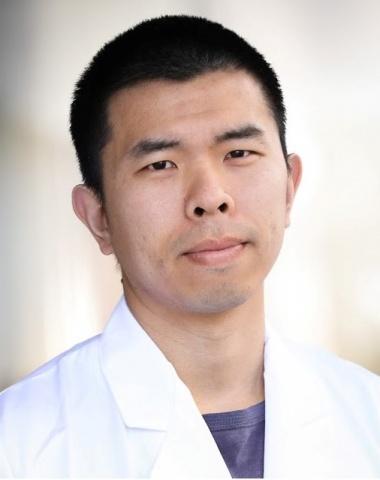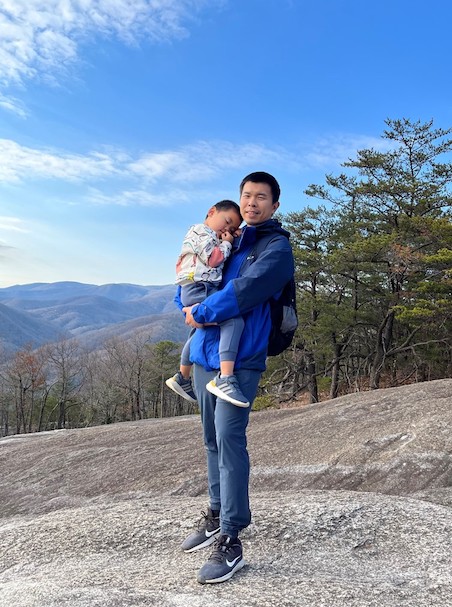
Zhiyong Liu, PhD, learned about the devastating effects neurodegenerative diseases have on patients and their families firsthand during his senior year of college, when he worked in a clinical research lab. Now, as a postdoctoral associate within the lab of Andy West, PhD, he’s performing translational research to develop new treatments for one of those conditions, Alzheimer’s disease. In this week’s “Spotlight” interview, Liu talks about the focus of his work, his recent K99/R00 award, and enjoying running, fishing, and time with his family when he’s not at work.
What are your current responsibilities within the lab of Andy West, PhD? What does a typical day look like for you?
I am currently a research associate in the lab of Dr. Andy West. My research has been focusing on the role of LRRK2 in endolysosomal dysfunction in neurodegenerative diseases. I usually start my day in the lab with a cup of coffee and about 20 mins reading the newly published research articles in the field, before I start to do my bench work.
How and when did you first get interested in the overlap between neuroscience and pharmacology?
I joined a clinical research lab when I was in my senior year at college. In shadowing neurologists, I learned how devastating neurodegenerative diseases are to the patients and their families, and how clinicians are largely focused on symptomatic treatment without any ability to positively affect the course of disease. That's when I started to get interested in the molecular pathways underlying neurodegenerative diseases and novel therapeutic strategies targeting the disease relevant molecules.
You recently received a K99/R00 transition award to start your research laboratory focused on vesicle trafficking defects in Alzheimer’s disease. When will this work begin, and how will it help us better understand, treat, or prevent Alzheimer’s disease?
The title of my K99/R00 transition award is for my project, the role of Rab10 in Alzheimer's disease. This work officially started on 3-15-2022, although I have been working on the function of Rab10 in endolysosomal dysfunction for more than 3 years.
Recent genetic analysis showed Rab10 variant carriers confers resiliency to AD susceptibility. In this project, we will test whether knockdown of Rab10 using antisense oligonucleotides (ASOs) attenuates AD relevant neuroinflammation and neuropathology in animal models. If this is tested to be true, the Rab10 ASOs can potentially move pretty fast into clinical trials and eventually help patients.
What do you enjoy most about your work?
I enjoy finding novel pathways that can potentially be targeted for therapeutic purposes, and eventually help patients. I also enjoy the process of making a hypothesis and testing it.
What’s the hardest part of your job?
A lot of the neurodegenerative diseases are age-dependent. The molecules that we study might only have subtle phenotype at the early stage of disease. We will have to optimize our models and be extremely patient to be able to see significant effects. The hardest part of research in general is making hypotheses that can actually impact the field.
What other passions or hobbies do you have outside of the Department?
I run 5k 5 times a week, and I enjoy taking my kid to local parks and playgrounds. If I have extra free time, I wish I could go fishing more often.
